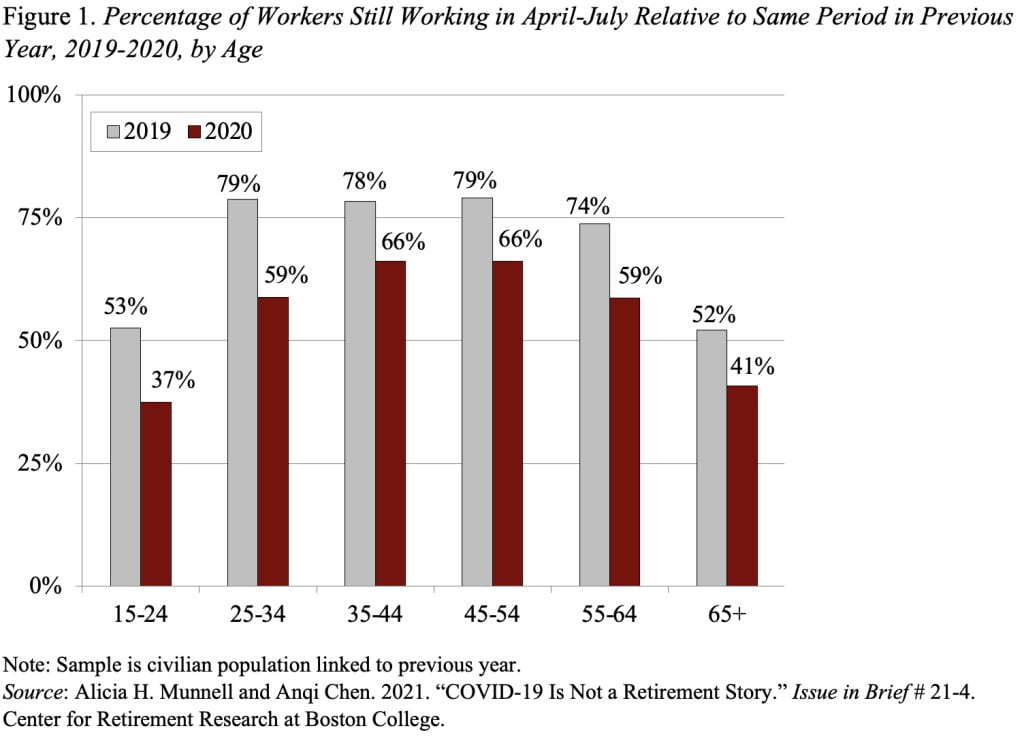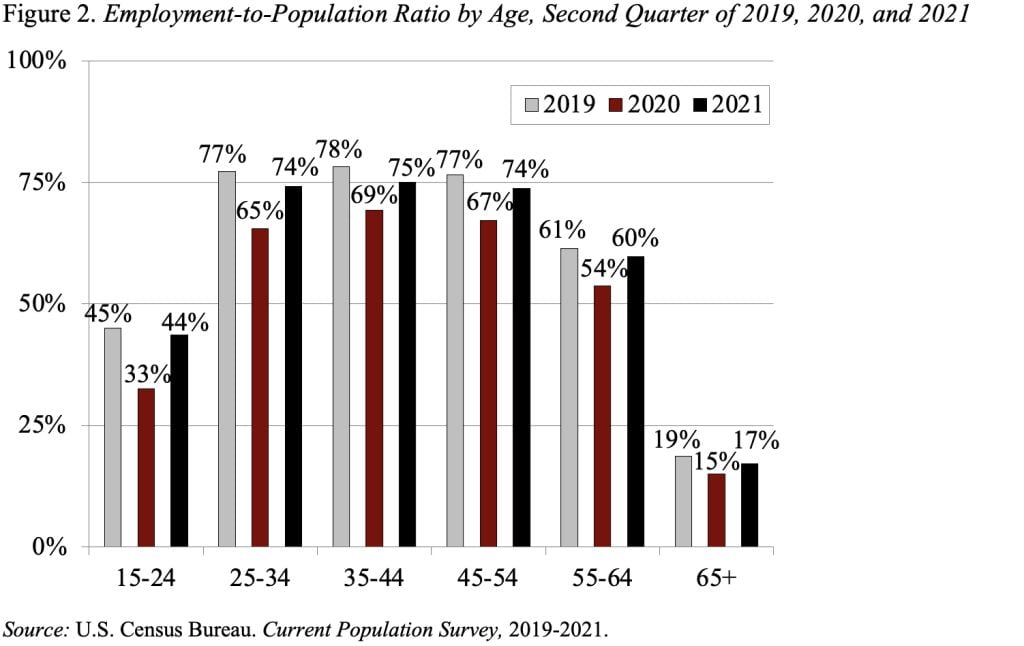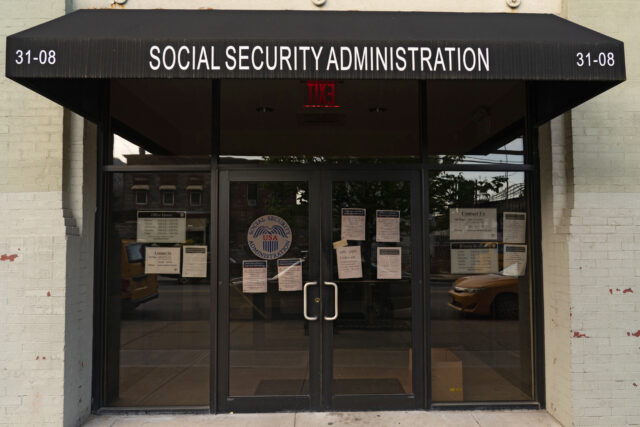
Were Older Workers Hurt Disproportionately by the COVID Recession?
Alicia H. Munnell is a columnist for MarketWatch and senior advisor of the Center for Retirement Research at Boston College.
The answer still appears to be “no.”
My colleague Anqi Chen and I have argued that older workers – both those ages 55-64 and 65+ – were not hurt disproportionately by the COVID recession. This conclusion was based on some very early data from the monthly Current Population Survey (CPS). The survey’s rotating interview pattern makes it possible to link individuals across time, which allowed us to see the labor force transitions for a subset of individuals between April-July 2019 and April-July 2020. As a basis of comparison, we also looked at the transitions of a different subset of households between the same months in 2018 and 2019.
The results are shown in Figure 1. In April-July 2020, 41 percent of those ages 65+ who had been employed in April-July 2019 were still working. In contrast, in April-July 2019, 52 percent of those 65+ who had been working in April-July 2018 were still working – a decline of 11 percentage points in 2020 compared to 2019. For those ages 55-64, the comparable numbers are 59 percent and 74 percent, for a difference of 15 percentage points. In terms of the deterioration in employment outcomes, workers ages 55-64 and 65+ fared about the same as prime-age workers and better than younger workers.

Another recent study offered an assessment of the implications for older workers by comparing the fate of older and younger workers based on the employment-to-population ratio for April 2020 relative to April 2019. The authors also concluded that those 55-64 – the bulk of older workers – fared better than their younger counterparts. On the other hand, for those 65+, they reported a bigger decline than for younger workers.
This new report led us to do three things. First, we rechecked our numbers on the rotating sample in Figure 1. They were correct. (I knew our research associate Patrick wouldn’t make a mistake!) Second, we checked the April numbers, and they too were correct. Finally, because we were concerned that the anomalous results came from focusing on a single month, we looked at the employment-to-population ratio for the second quarters of 2019, 2020, and 2021. Again, the drop in the ratio for both 55-64 and 65+ was minor compared to that for younger workers (see Figure 2). And the employment rate for older workers is almost back to pre-recession levels.

In short, recessions hurt workers, and employment dropped for people of all ages. The question is whether older workers were especially disadvantaged. The answer is “no.”







